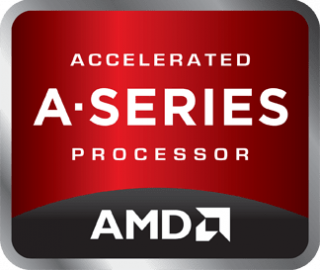

AMD A9-9420e: 28 nm, Stoney Ridge (Excavator), 2 X 1.80 GHz, DDR4-2133.
AMD Epyc 7702: , Rome (Zen 2), 64 X 2.00 GHz, DDR4-3200.
Technical specs
Comparing AMD A9-9420e vs AMD A9-9420e processors on basic technical specifications will help you know the performance difference, as well as:
1) Determine which is better in comparison AMD A9-9420e vs AMD A9-9420e suitable for gaming?
2) Which processor is more energy efficient?
3) The key difference in performance and speed.
We have comprehensive information comparing AMD A9-9420e vs AMD A9-9420e to analyze the data and make the right choice.
CPU generation and family
AMD A9-9420e vs AMD Epyc 7702 in a comparison of processor generations and families. Friends, this indicator may be of little use in comparing generations of different brands, as it is very difficult to keep track of the release of new processor models and even more so the sequence and the exact names of the family. Therefore, all the information in the table is presented for information purposes, it is not taken into account in the final performance rating.
iGPU
Comparing AMD A9-9420e vs AMD Epyc 7702 processor models shows the difference in performance of the embedded graphics core (in case there is one in the model). If one of the compared processors does not have an iGPU, you can skip this comparison result and move on to the next blocks of information.
Hardware codec support
Comparing AMD A9-9420e vs AMD Epyc 7702 in hardware codec support you can see which codecs are not or are supported by models. This information is not factored into the overall model performance rating and is for informational purposes only.
Memory Specifications
Compare AMD A9-9420e vs AMD Epyc 7702 in the segment of supported RAM, type of RAM, as well as its maximum size and number of channels supported. Each processor is compared in terms of peak performance, so we recommend that you pay close attention to all memory speed parameters. The processor that supports the more advanced memory standard, clock frequency, and capacity will win.
Thermal Management (TDP)
Comparing AMD A9-9420e and AMD Epyc 7702 in terms of thermal efficiency and TDP. The higher the TDP of the processor, the more powerful the power supply unit is to reach its potential, also powerful processors with a high TPD need an effective (usually expensive) cooling system. In addition to this, a processor with a high TDP is very warm, which will require you to spend more money on a larger system case.
Additional specifications
AMD A9-9420e vs AMD Epyc 7702 - It's time to know the difference in comparing the additional characteristics of these processor models, namely to determine the difference in the size of second and third level memory, the date of production, the technological method of manufacturing the chip, as well as the difference in the motherboard socket.
Use Conditions
AMD A9-9420e versus AMD Epyc 7702 in use segment. Mobile processors are not only used in smartphones or tablets, they can be upgraded and used in laptops. Therefore, background information on the potential of the models being compared will be useful.
A processor (CPU) is literally the brain of a computer, determining how quickly it can run programs, execute commands, process data, and, well, “think.” On our site, we've sorted for you all the computer processors from best to worst according to the Cinebench R20 (Single-Core) benchmark results. After all, choosing a processor can be tricky, and you need to find the answer to a number of questions: - Which processors are the best? - Is this a good time to buy a new processor? - Why do processors need more cores? To avoid the hassle, just find out which processor is the best of all the PC processors and win the competition of the strongest processors. A list of desktop PC processors, from best to worst, single and multi-core, is at your disposal.
From frame rates to scalable gameplay settings, the CPU is a vital component for gaming. A CPU’s clock speed and core count help to indicate its performance capabilities. If you're looking for a good cpu for gaming, pick the best processor possible to minimise bottlenecking. And to choose the best, uuse our rating based on Cinebench R23 (Multi-Core) test results. Also note the following: - Why do you need a good CPU for gaming? - What is the best CPU for gaming budget? - Which CPU should I choose for my gaming PC? - How to choose the best CPU for your gaming PC? If you're primarily interested in high-end gaming performance, you should opt for a mid-range CPU.
You'll find plenty of guides to the best processors on our site. Here is the latest update to our list of recommended gaming processors based on the Cinebench R20 (Multi-Core) stress test. This processor benchmark will allow you to find the best processor for your budget. Pay attention to additional factors as well: - What is the top processor? - What are the top 5 processors? - What is the best processor for a PC? Processor rankings help you find the best processor for gaming on your laptop or PC. Our processor hierarchy ranks current and previous generations of processors based on performance in tests.
iGPU - FP32 Performance (Single-precision GFLOPS)
The best processor for programming with high performance will be easy to find. The rating of computer processors is at your disposal. compiled taking into account price and performance. It is necessary to pay attention to the following: - Which processor is best for gaming and productivity? - Which CPU is fastest for gaming? - What is the best CPU for gaming and editing? - What is the most powerful gaming CPU? The best single-core or multi-core processor with good performance will always be at your disposal. Use our top to buy a good new processor.
Geekbench 5, 64bit (Multi-Core)
Are you looking for the best processor for gaming to boost your PC's performance? Here are Intel and AMD processor rankings based on Geekbench benchmark results. Choose the right one and consider additional nuances: - Which is the best processor for laptop? - What processor is best for gaming? - Which is the No 1 processor for gaming? The processor is like the brain of your computer, and without it, you're left with a very expensive box of bolts. Discover the best CPUs for your computer for a pleasant gaming experience.
How to choose the right CPU for your motherboard? — One of the most essential skills a PC enthusiast should learn is how to choose a CPU, especially if you plan to build more PCs in the future. How do I choose a perfect CPU? CPU guides are all about CPU specifications. To help you get your bearings, we analyzed the specifications with the Blender 2.81 benchmark tests. Please also note the following: - How do you choose a suitable CPU? - What are the 4 types of CPU? - How strong of a CPU do I need? - How do I choose an Intel CPU for my PC? Whether you're building or upgrading a PC, the processor matters a lot. We'll help you choose the right one for your needs.
Buying the right processor for PC gaming is complicated—especially in these days. Like the remaining gaming equipment, the best cheap CPUs for gaming are made by prominent companies. To help in your mission of finding the best affordable processor, we've tested several cheap CPUs to help you find the right one for you. Our ranking of popular processors, based on the results of the PassMark CPU Mark benchmark, will allow you to draw conclusions. Consider the following: - Which is the best budget CPU? - What is a good budget CPU for gaming 2022? - Is Intel or AMD better for budget gaming? - How much should a CPU cost on the budget? With GPUs being so expensive, and CPUs being so cheap, how much can one expect to pay for a decent budget CPU? Well, it's not as much as you probably think! Find your dream budget CPU that will give you the performance you want.
Processors for mining should be the most modern and effective. There are no specific models that are created specifically for mining. Just evaluate CPU performance in cryptocurrency mining XMR (Monero). As a general rule of thumb, most experts advise one to spend as little as possible for CPU and RAM on a mining rig. Also consider the following: - What is the best CPU for cryptocurrency mining? - What is mining on a CPU? - What is a processor in crypto mining? - Is it worth it to mine with CPU? Generally, a processor can thread up to twice its base amount. For example, a 4 core processor can produce up to 8 threads on average.

